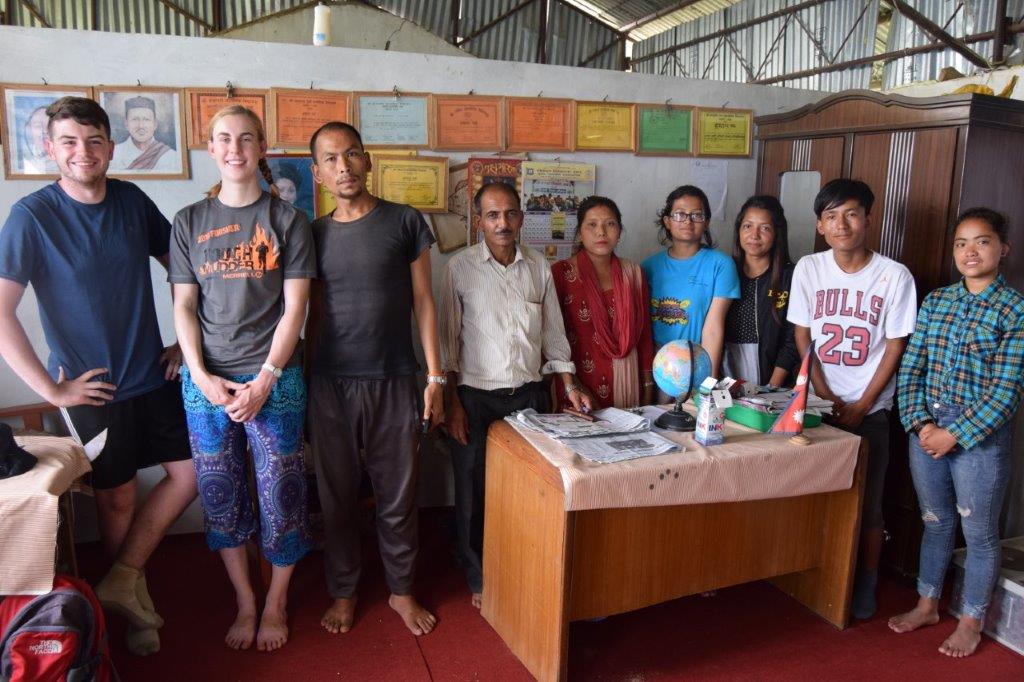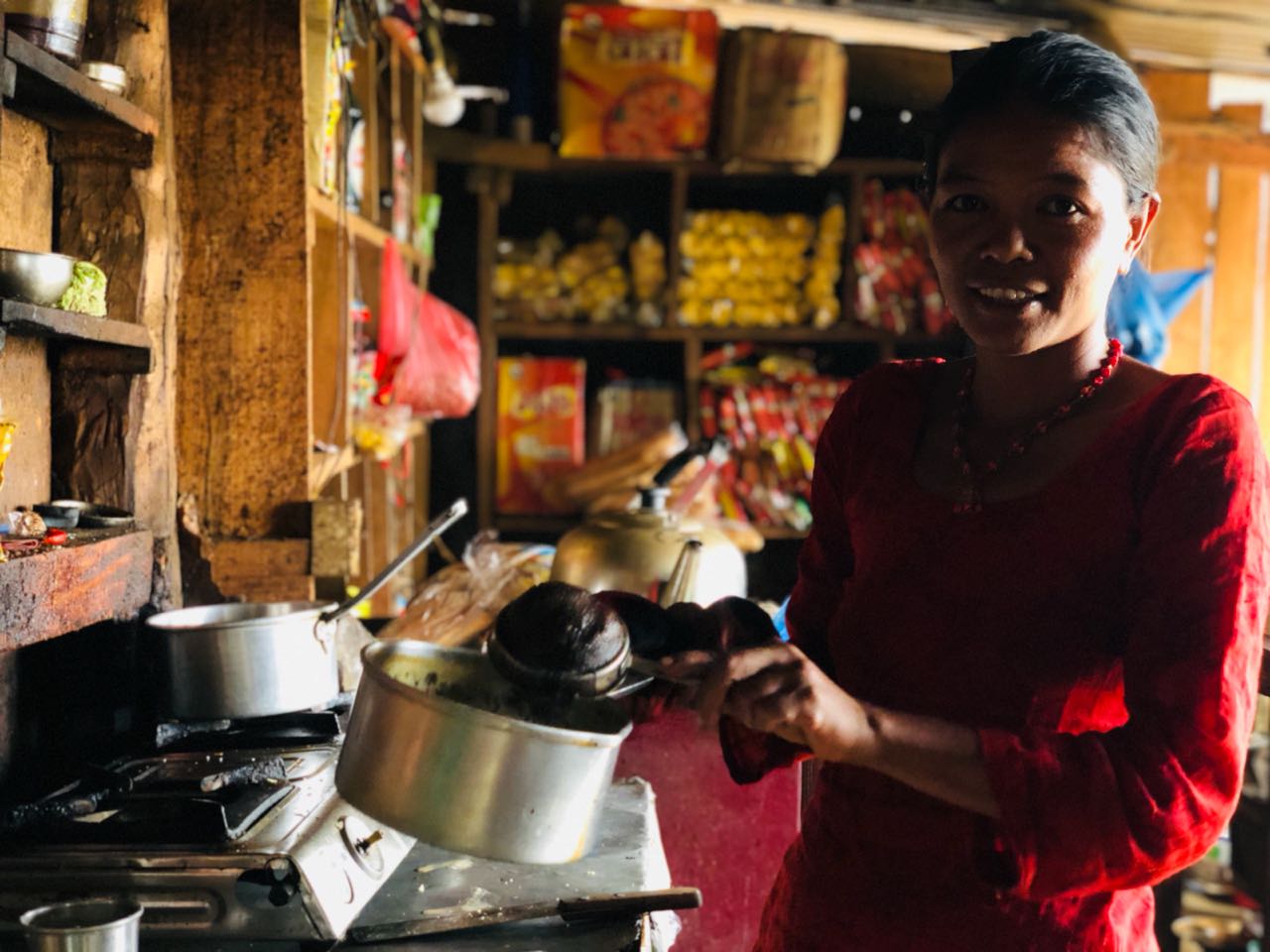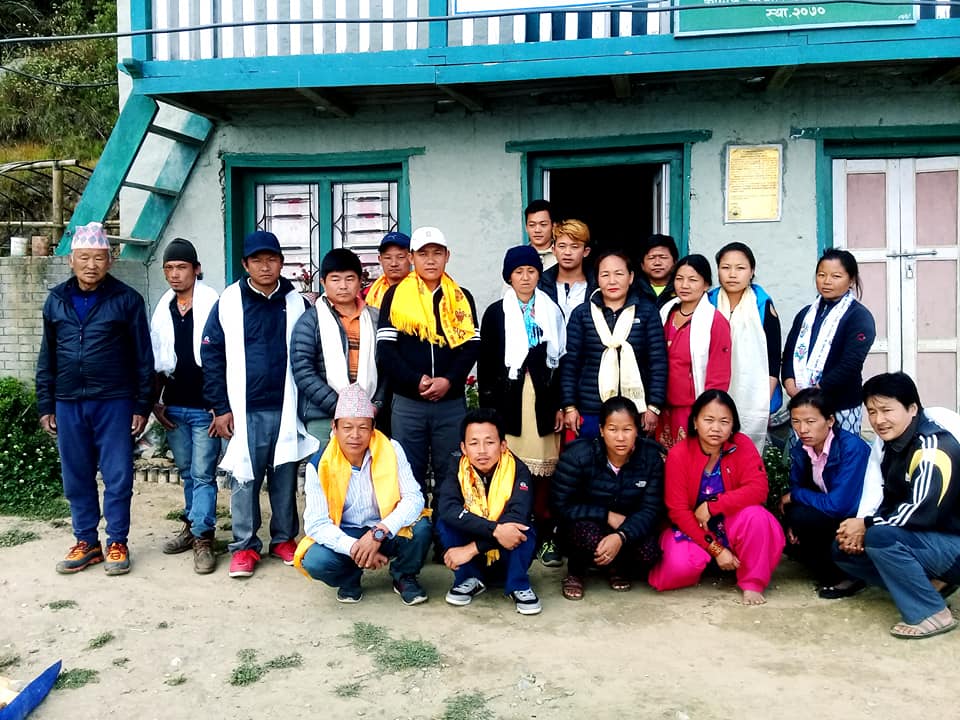As part of our Higher Education Programme, four students (two British, two Nepali) have been in Kavre on a study trip this month. Their research has been going very well. We caught up with one of the students, Tom Webber, earlier this week who filled us in on how things are progressing:
I thought this would be a good opportunity to update everyone on how our work is going.
Since arriving in Kavre last week I’ve had a fantastic time getting to know the local people and experiencing a totally different lifestyle to that of which I’m used to. The level of community spirit and mutual support of each other is something we could really learn from in England.
Due to a combination of excellent support from EcoHimal, good health and fortunate weather conditions have meant we are far ahead of schedule.
I’ve been able to speak with a wide range of people including schools, women and mothers groups, agricultural works and shop owners. Their experiences of water access prior and post earthquake have been incredibly varied and some very interesting points of view have been made. One thing that has particularly stood out to me is how resilient the people of Kavre are in spite of difficult conditions and how important NGO help is to their livelihoods due to the lack of government support given to many.
I’d like to take this opportunity to thank both The Glacier Trust and EcoHimal for making this work possible and providing such great support throughout.
Tom is looking at water infrastructure in Kavre, he'll be providing us with a full report on this findings. Judging by the photos he has sent through, it will be an interesting read














































